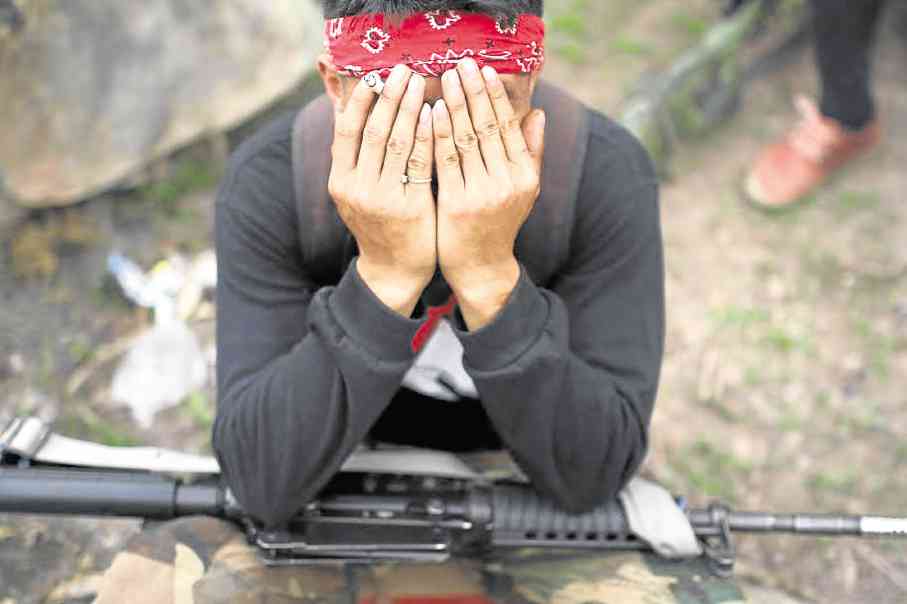Rebels think of work in farms if truce prevails
MATI CITY—If communist rebels would be given a respite from fighting should a truce prevail between them and government soldiers, some rebels would seize the chance to go back to farming.
Government and rebel negotiating panels are to meet on April 2-6 in The Netherlands for a fourth round of talks, driven by optimism that they could finally resolve issues on social justice and political reforms that would pave the way for lasting peace.
“We would be happy if the ceasefire would be reinstated because then the [New People’s Army (NPA)] can focus on other tasks instead of just launching operations against government forces or evading their maneuvers,” said Randy, a 29-year-old member of the NPA’s Guerrilla Front 18 operating in the mountains of Compostela Valley and portions of Davao Oriental.
The young rebel also said communities would greatly benefit if a ceasefire mechanism was in place.
“Contrary to notions that the NPA would stay in the jungle and cradle our guns, we would go out more often in the communities during a ceasefire,” he said.
Article continues after this advertisementRandy said there were already discussions and plans within his command about what tasks would need to be done during the ceasefire.
Article continues after this advertisementHe said a truce would allow rebels to go out in the fields and help farmers prepare their land for planting, harvest or help provide postproduction labor.
A lull in hostilities, he said, could be used by rebels to offer free manpower to farming communities deeply hurt by the conflict.
“This would be our contribution to them,” Randy said.
He said the NPA was also ready to discuss with villagers the rebels’ concepts of politics and economy and offer lessons in basic livelihood that could help raise village incomes.
Randy said the NPA would also strengthen its campaign against illegal drugs in the communities, but he said the rebels would focus more on the economic aspect of the issue by providing alternative livelihood to people involved in the drug trade for lack of jobs.
Elisabeth, resident of a poor farming village in Davao Oriental, said the resumption of the talks would be a sigh of relief for many villages caught in the violent conflict.
“We are just hoping that this time both parties would really go all-out in ensuring that bloody clashes would not happen anymore,” Elisabeth said.
Elisabeth added that residents are praying that the peace process would not stop at just reducing conflict but lead to delivery of basic services in far-flung communities.
“Life is very hard here. The roads are bad. We have no clinics or schools; that’s why our options in life are limited. I hope the government and the communists would now work together not just for their agenda but most importantly for our future,” Elisabeth said.
On top of the agenda in the coming talks are proposals to institute massive social reforms and overhaul the political system that could lead to a federal form of government.
The conflict between the rebels and the government, known as one of the longest-running Maoist movements in Asia, has stretched for at least 47 years. —KARLOS MANLUPIG
